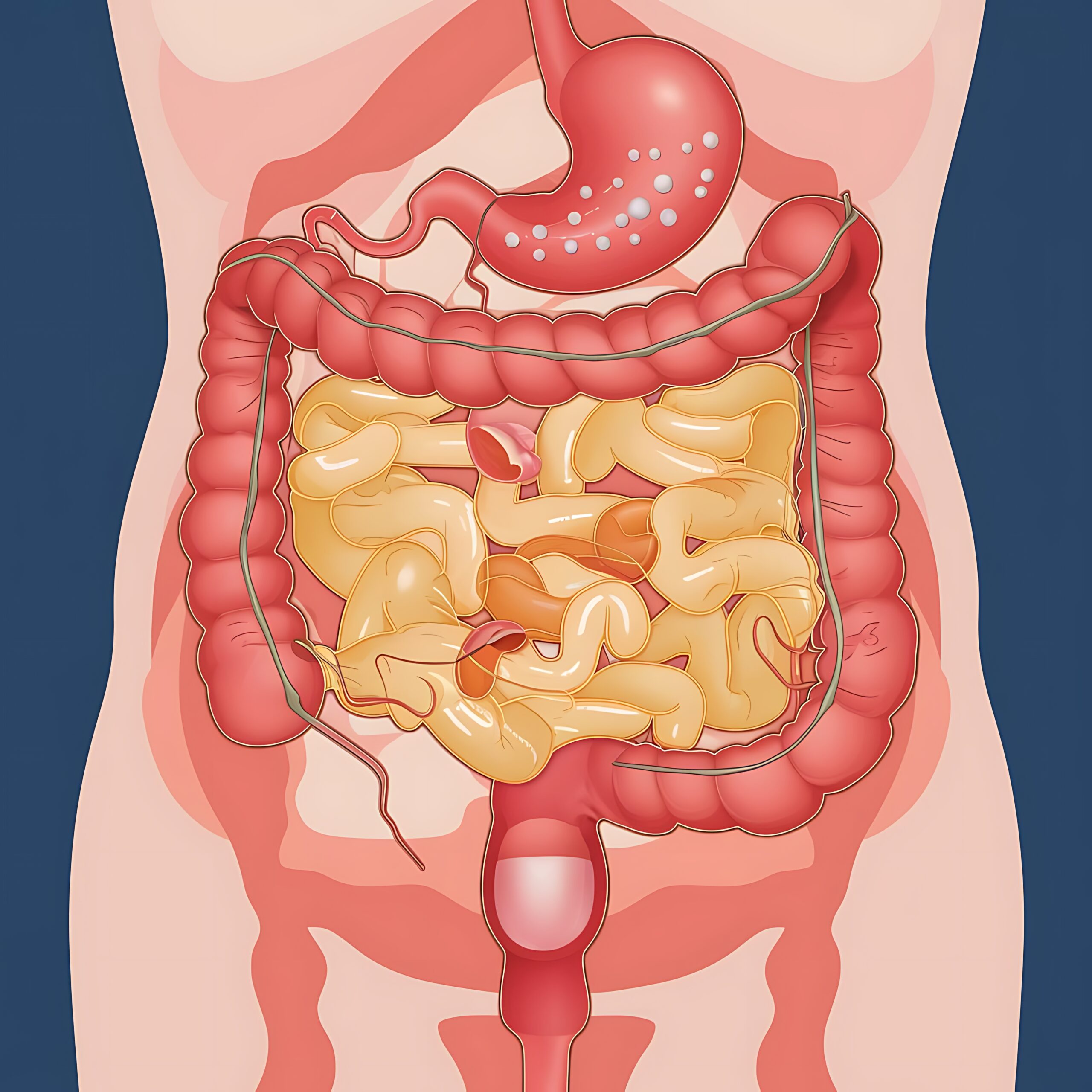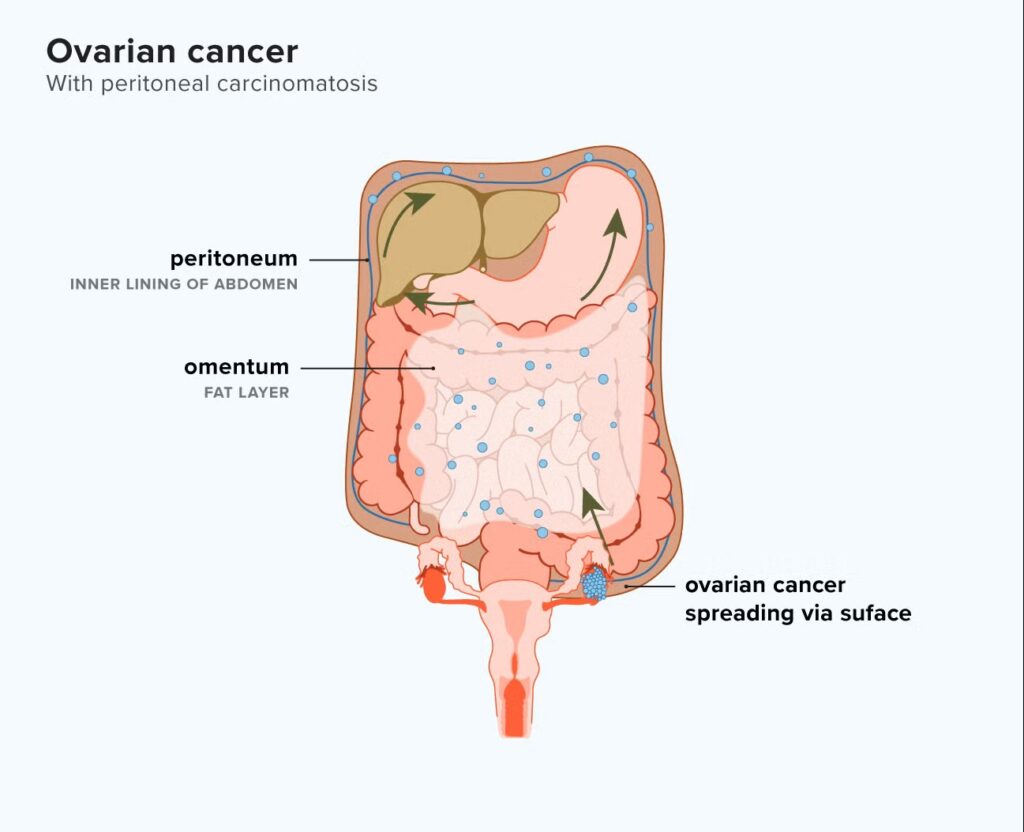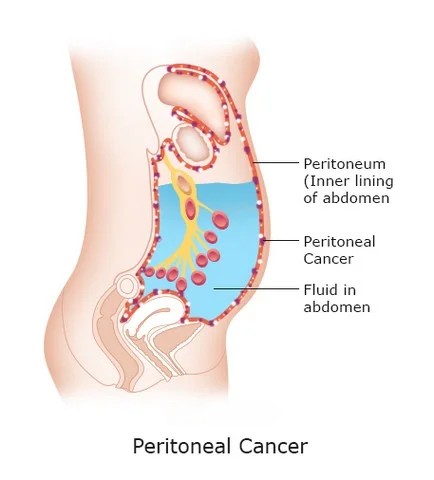PRIMARY PERITONEAL CANCER
Primary Peritoneal Cancer
(Peritoneal surface carcinoma)
Primary Peritoneal Cancer (PPC) is a rare but serious type of cancer that begins in the peritoneum—the thin layer of tissue lining the abdomen and covering abdominal organs. Even though it resembles ovarian cancer in behavior and appearance, PPC can occur even in individuals whose ovaries have been removed.
This cancer originates from the same type of cells that line the ovaries, called epithelial cells, and often spreads within the abdominal cavity. Early detection is difficult because symptoms are usually vague and develop slowly over time.

Symptoms and Signs of Primary Peritoneal Cancer
Abdominal bloating or swelling
Persistent abdominal or pelvic pain
Indigestion or changes in appetite
Unexplained weight loss or gain (especially due to fluid buildup)
Frequent urination or changes in bowel habits
Feeling full quickly while eating
Fatigue and general discomfort in the abdomen

What is the Treatment for Primary Peritoneal Cancer?
1. Surgery:
Dr. Prosenjit Das performs cytoreductive surgery to remove as much cancer as possible, including affected organs like the uterus, ovaries, and visible peritoneal tumors.
2. Chemotherapy:
Most patients receive platinum-based chemotherapy after surgery. In some cases, chemotherapy is given before surgery (neoadjuvant) to shrink tumors.
3. HIPEC:
In selected cases, heated chemotherapy (HIPEC) is delivered directly into the abdomen during surgery for improved local control.
4. Targeted Therapy & Clinical Trials:
For advanced or recurrent cases, targeted treatments or clinical trial options may be explored based on the tumor’s genetic profile.

Why Choose Dr. Prosenjit Das?
Dr. Prosenjit Das brings over a decade of experience in complex cancer surgeries and has specialized expertise in treating peritoneal surface malignancies. With training from premier institutions like JIPMER and MRCS (England) certification, he offers a multidisciplinary and personalized treatment approach — balancing surgical precision with compassion and evidence-based care.

